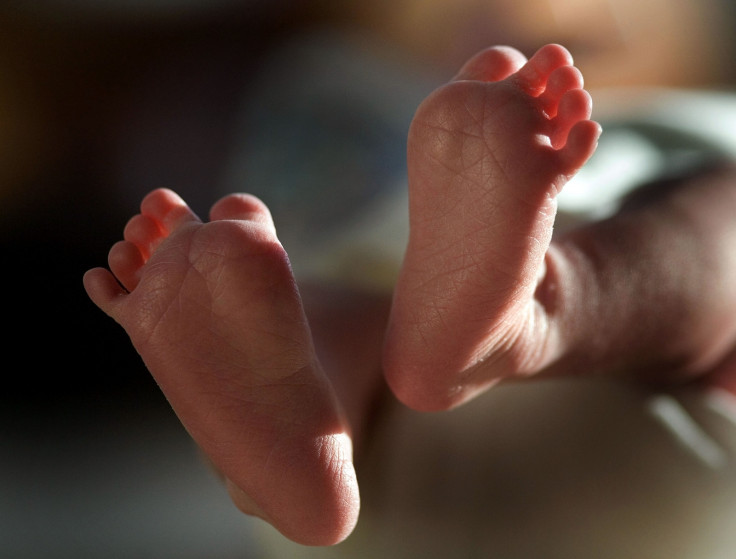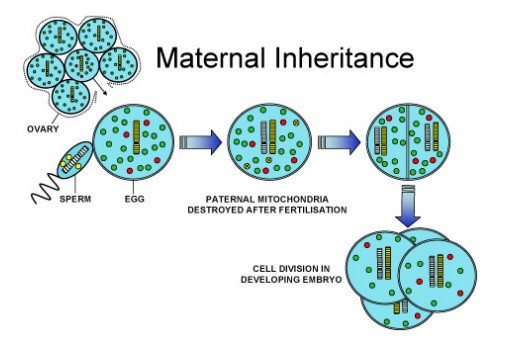Three-parent babies: How does it work and is it ethical?

MPs will hold a landmark vote on Tuesday (3 February, 2015) to decide whether to allow the creation of babies using DNA from three people.
The IVF technique called mitochondrial donation, or mitochondrial replacement therapy, involves replacing a small amount of faulty DNA in a mother's egg with healthy DNA from another woman, so the baby inherits genes from two females and one male. Dubbed "three-parent babies", the idea is to prevent certain genetic diseases from being passed on to the child.
If there is a "yes" vote in the Commons, Britain will become the first country to legalise babies with DNA from three people. The majority of experts are in favour, but the procedure has sparked an ethical debate among church figures, who are calling for mitochondrial donation in IVF babies to be blocked.
The procedure is currently banned under UK law, but British MPs have been given the right to vote with their consciences. If the change in law is approved, the decision will pass to the House of Lords for a vote at the end of February 2014. Given the go-ahead by the Lords, the UK fertility regulator will be able to licence fertility clinics for the procedure.
What are mitochondria and what is mitochondrial disease?
Mitochondria are tiny rod-like structures in cells that are responsible for producing the energy that the cell needs to function. The cells make up organs and tissues in our bodies. If the cells do not have energy, the tissues and organs do not work properly.
Harmful mutations in mitochondrial DNA - mDNA - can prevent the mitochondria working properly, which results in a number of complicated diseases which can be serious or life-threatening.
These problems range from poor vision to muscular dystrophy and learning difficulties. The worst organs affected are the brain, heart, muscles and liver. Most mitochondrial diseases are present at birth and get steadily worse, often proving fatal before adulthood.
What are the benefits of three-parent babies?
Mitochondrial diseases are rare, affecting one in 5,000 of the population, but can be devastating. As children may inherit mitochondrial DNA defects from their mothers, but not their fathers, altering the faulty DNA in the mother's egg can help prevent mitochondrial disease.
Although some people with faulty mDNA can develop symptoms, others carry the condition without any effects. Gene manipulation therapy could potentially eradicate hereditary illness.

What are the procedures used?
Two procedures are used to replace the faulty mDNA. Maternal Spindle Transfer is carried out before fertilisation and involves removing the nuclear DNA from a donor egg. The "spindle" of chromosomes containing the mother's nuclear DNA is then taken from her egg and inserted into the donor egg. The donor egg is therefore left with nuclear DNA from the mother and mDNA from the donor, and the healthy egg is then fertilised and implanted into the mother's womb.
Pronuclear Transfer is carried out after the fertilisation of the mother's egg. Its nuclear DNA is then transferred to a fertilised donor egg which contains healthy mitochondria, whose own nuclear DNA has been removed. This healthy fertilised egg is then implanted.
Is it safe?
As the procedure is relatively new, experts cannot say the risk is zero. However, laboratory tests suggest it is safe. Experiments carried out by the Human Fertilisation and Embryology's Authority have found no evidence the technique is unsafe.
Professor Lisa Jardine, former chair of the HFEA, told the BBC that the safety issue was a "red herring".
"All of those issues have been investigated," she said. "The scientific committees have said there is no evidence this procedure is unsafe but like all good scientists, they say it will require careful progress."
What are the concerns voiced by opponents?
Critics have raised ethical concerns over consent and potential unexpected problems with the procedure, as it affects people who are not yet born. Some scientists have said they want to see further research to better understand mitochondria.
Religious objections have been brought up by the Catholic Church, who oppose pronuclear transfer as it involves destroying a fertilised egg from the mother. Although the Church of England states it is not opposed in principle, it has said it wants to see further scientific research on the ethics of the procedure.
Other religious groups argue that scientists are "playing God" and argue that children who undergo mitochondrial donation may suffer psychological damage.
Will the procedure allow "designer" babies?
No. Mitochondrial DNA makes up around 0.1% of the total DNA of a cell and does not affect individual characteristics, such as personality or appearance.
© Copyright IBTimes 2025. All rights reserved.






















